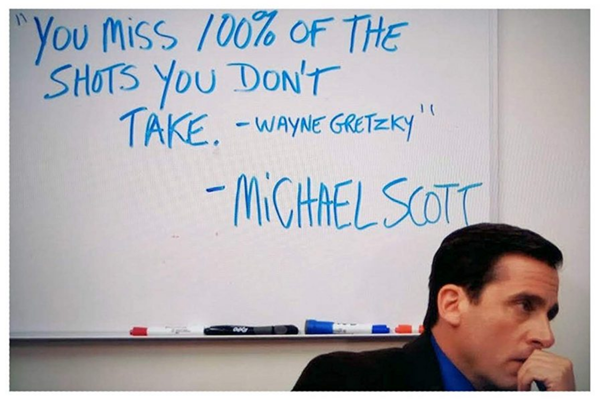How to improve as an email marketer: 5 Lessons learned from 20 years in email marketing
I’ve realised that as I write this, I’ve just hit 20 years in Email Marketing.
Back in August 2002 I started my first job as Marketing Executive for a company that sold computers, printers, and peripherals to government and corporates. This is where, as a fresh-faced (and thinner) graduate I discovered this amazing marketing channel. You could see who had opened the email and what they clicked on – wow! And you could personalise in all sorts of ways. I was hooked.
One year later I lucked out by finding a start-up ESP on my doorstep where I was able to immerse myself in this amazing industry, have great days like when we found an ex-KGB hacker to crack the contents of the Outlook 2007 Spam filter for us (just stuff a few words like September in a comment tag to avoid junk!) and those bad days like when Spamcop decided to unjustly block all our IP addresses across multiple networks we owned.
20 years’ experience is nothing compared to some of the OI community, but as I’ve hit the milestone, I thought I’d share 5 things that have helped me develop as an email marketer over the years in the hope those fresher to the industry might benefit in some way.
1. Doing is the best form of learning
Books and best practice articles are great as an initial place to start thinking about email, but the best email marketers have developed their knowledge from just trying things and seeing what happens.
Most days I see some ‘expert’ on LinkedIn post some form of best practice – and my experience allows me to judge they’ve never actually done any practical work in that area. Back in my early days of working at an ESP I was probably one of those people. You would advise on what you think is the right thing, not what you’ve learned from your own experiences.
What really helped me was taking a proactive approach and finding cool and exciting projects just so we could learn and build our capabilities. We would volunteer and do it for free. We didn’t know how to do something; we would have to work it out as we went along. You can’t help but learn a lot with this approach and as scary as it sounds it is so rewarding knowing you are breaking ground that few others have.
Probably the example that sticks in my mind from this period is our work for restaurant booking service toptable (long ago acquired by OpenTable). We got the work by coming up with ideas, most of which we hadn’t any experience in. We ended up, for the era anyway, with some crazy complicated yet amazingly effective personalisation showing restaurants in each persons location across a diverse email programme. We won awards, improved our tech and I’m still catching up on the lost sleep 15 years later from the late nights babysitting processes and debugging things.
But the rewards for the lost sleep are seen today. Had we not put ourselves out there and made the effort I wouldn’t know a fraction of what I do today, and it’s probably the reason why today I’m working on advanced (and interesting) personalisation projects. And nowadays I even get paid for it.
2. Do things that don’t scale
Taking a leaf out of most advice given to start-up founders is to try things that may not be scalable but allow you to learn. This might be in relation to a sales strategy that involves face to face meetings to get $50-a-month customers and then work out how to scale it. Or perhaps creating a software feature that you start by manually do stuff behind the scenes to make it work. This is quick to get going but isn’t scalable – but if it doesn’t generate any interest or results you haven’t wasted huge chunks of time trying to build it in a scalable way.
In relation to email marketing there are lots of times this applies, and in my focus around personalisation I see it a lot as the client waits for perfect automated data feeds before commencing any work. You don’t even know if a particular strategy will work, and as the saying goes “you don’t know what you don’t know” so what tweaks and changes will be needed from your original plan.
That’s why it’s always better to find a way of knocking something up to both prove a concept and learn. Back in my client-side days our first steps into 1-2-1 personalised emails were to manually create 20 variants based upon the customer’s favourite brand. We cut a few corners with the creative to have something simple to build in less than a day, and manually picked the products to show for each variant.
All in all, it took us a full day to create between myself and our designer. Results were outstanding – from memory nearly double the revenue of a normal email. We learned a lot about picking products for these emails that fed into the development of our AI Product Recommendations. Probably the most important thing was by having some positive results we were able to go around the business and show people why we needed their support and additional resources (We didn’t tell them about other things we’d tried that bombed!).
If we’d tried building the best, fully automated suite of personalised emails from the start we would have had trouble getting prioritised with the techies amongst the other dozens of competing requests, and we would have had to gone back a few times after realising what we requested needed changing.
But also trying new things in this way is great fun!
3. Broaden your horizons but find a niche
The best career move I made was to leave after 10 years of working for an ESP where I had lots of influence, great clients, and a strong emotional attachment. I took a job the other side of the fence and went client-side. If I measure the move financially it looks terrible as I even took a small pay cut to join as Head of eCRM for a European Footwear retail group.
But the skills and knowledge I learned in those 2.5 years were amazing. That is not to say I learned any more practical email marketing skills, but I learned more about the practical realities of running email marketing in a busy e-commerce team who are being pushed and pulled from all directions. Coming from running dozens of email campaigns a week to a fraction of that you work out why it takes so long to knock out a handful of that client-side. You realise why commercial pressures mean you end up hammering your database with endless promos to hit those short-term goals, so the boss doesn’t get the sack.
Yet it works the other way as well. Having worked for an ESP, I’d been equipped with endless practical skills and been exposed to a huge variety of brands and their approaches. Without wanting to sound flippant, once I’d got 6 months in and learned about working alongside colleagues across multiple functions the email marketing bit was a doddle. From that we were operating at a high level with amazing results compared to other teams across Europe and those managing other marketing channels in our team.
Now I’ve moved back into working on behalf of clients those 2.5 years make me 10X the consultant I’d have been with just the experience of my ESP days.
The point here is not to suggest I’d turned into Superman. But how diverse experiences, whether it be in different roles, industries, or environments really make you a better email marketer.
Having a broad range of knowledge and skills is one thing but also having one specific area of expertise, or a passion project, is useful for giving you a focus but also standing out from the crowd. For me this is personalisation. In the OI community you’ll see others who have that broad range of email expertise but super in-tune with specific areas such as deliverability, email vendor selection, testing & optimisation, or analytics.
4. Get some practical skills
Email marketing is a broad discipline compared to so many marketing channels. As marketers we have historically not been expected to do the execution – we have designer, agencies and so on to do the dirty work.
But great email marketing needs technical skills that are always in high demand and short supply whether that be coders, data analysts, or developers. Your projects will inevitably be held up as they can’t practically be developed, or you aren’t able to define the right strategy because you don’t have the right analysis.
I’m not suggesting you become a full programmer or data analyst but even if you learn how to create simple pivot tables in Excel or basic HTML and scripting allows you to add that dynamic content you always wanted you will get where you want to go much faster, and you’ll find you develop a much greater understanding of what is possible and write better briefs for the techies you need.
5. Evolve your thinking
The great, late Australian superstar cricketer Shane Warne once famously (famous in countries that play cricket anyway!) said that a certain player hadn’t played 33 matches for his country, but he had played the same match 33 times, suggesting that in all those games this player hadn’t evolved and developed his skills.
Some email marketers are the same. They go from job to job treating each email programme with the same checklist approach without stopping and thinking about what is right in each individual circumstance.
The best email marketers don’t assume industry best practice and conventional wisdom is the only way. They challenge it and accept there isn’t a right and a wrong answer. They also are open to changing their mind.
Let’s look at one prime example that I see all the time.
Conventional wisdom: “Sending an email every day is bad because it annoys customers, creates unsubscribes and deliverability issues”.
Enter Tim Watson of Zettasphere – the optimum number of emails per week is 6.7. Or what Dela Quist might say about email volume and sending too few emails leads you to get sacked.
I bet both Tim and Dela at one point assumed sending such a high volume of email is wrong but crucially they set out to test the conventional wisdom. And maybe they have even changed their mind again if they’ve evolved their thinking to the next stage.
Summing up
I hope this article has made it clear that these are simply my ideas and thoughts – I’m not saying I’m right. These are ideas formed from my own experiences. And perhaps that is the key thought from all of this that you need to be your own person with your own ideas.
If you want to be a better email marketer, get out there and try things out of your comfort zone, don’t rely on other people to tell you what is right and wrong. Constantly challenge yourself and your way of thinking – don’t stick to a belief because it would be more convenient to be true than the reality.
And be brave, all of us are wrong at times but how about we finish with this quote from the philosopher Michael Scott:


 How to resolve AdBlock issue?
How to resolve AdBlock issue? 
 Sean Duffy is founder of Segmentum, an eCRM strategy & implementation agency, and Reignite, a real-time email personalisation platform.
Sean Duffy is founder of Segmentum, an eCRM strategy & implementation agency, and Reignite, a real-time email personalisation platform.